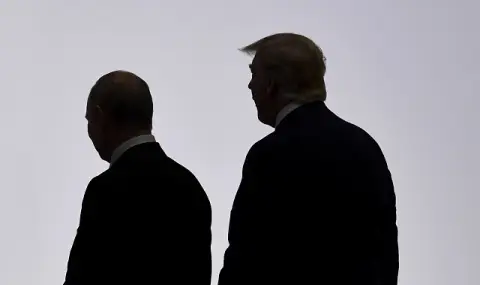US President Donald Trump said last night that he believes the United States is making progress in talks to end the war between Russia and Ukraine, but refused to provide details of any communications he has had with Russian President Vladimir Putin, Reuters reported, quoted by BTA.
In front of reporters aboard the presidential plane "Air Force One" Trump said he and Putin had made contact.
This would be the first officially acknowledged conversation between Putin and a US president since early 2022, Reuters notes.
Asked if he had spoken to Putin since he became president on January 20 or before, Trump replied: "I have. Let's just say I have... And I expect to have many more conversations. We have to end this war."
"If we are talking, I don't want to tell you about the conversations," Trump also said. "I believe we are making progress. We want to stop the war between Ukraine and Russia," he added.
The president said the US was in contact with both Russia and Ukraine. “We are talking to both sides”, he stressed.
During his election campaign, Trump promised to end the war, but has not yet publicly explained how he would do it, Reuters recalls.
In an interview with the “New York Post“ on Friday, Trump said that “it is better not to say” how many times he has spoken to Putin and did not reveal when the last conversation took place.
“It is possible that I personally do not know something, that I am not aware of something”, said Kremlin spokesman Dmitry Peskov, when asked about the issue by TASS. "So in this case, I can neither confirm nor deny it," he added.
White House National Security Adviser Mike Walz also declined to elaborate when asked about the communications between the two sides. "There are certainly very delicate conversations going on," Walz told NBC News.
Russia has not received any satisfactory proposals to start talks on Ukraine, Russian Deputy Foreign Minister Mikhail Galuzin told the state-run RIA news agency.
"It is important that words are backed up by practical steps that take into account Russia's legitimate interests, demonstrating a readiness to eradicate the root causes of the crisis and recognize new realities," Galuzin said.
